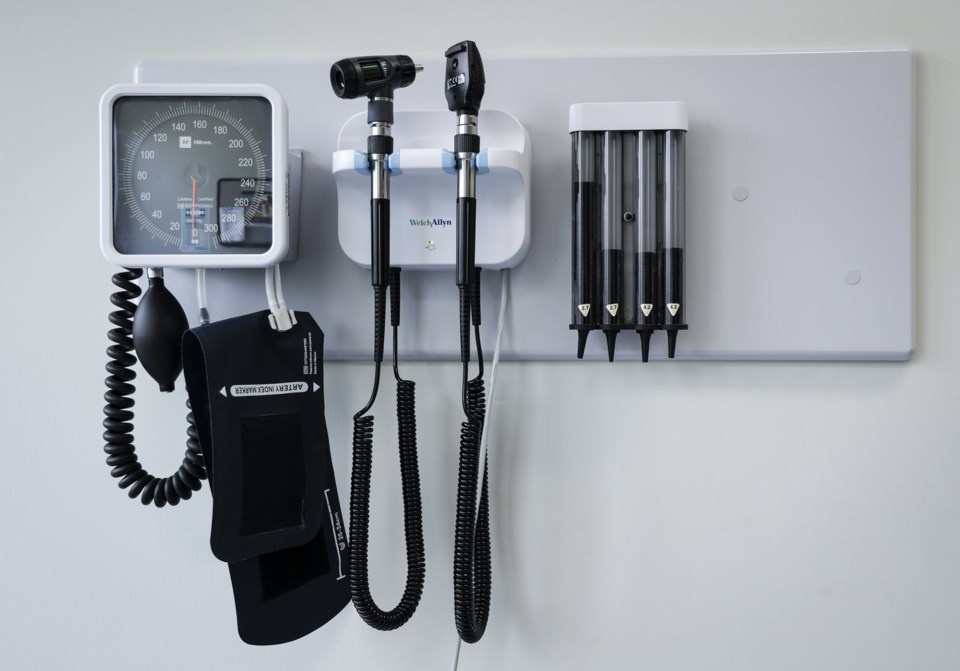EDMONTON — Health experts, advocates and unions are sounding the alarm over Alberta’s plan for paid COVID-19 shots, calling it concerning and confusing.
On Monday, two months after the province announced it was adding a fee, it opened online pre-ordering for the vaccine. Albertans still need to book appointments for the shots, starting in October.
Dr. James Talbot, the province’s former chief medical officer of health, said the government appears to be doing everything it can to make this year’s immunization campaign a “failure" by making it less available, less accessible and less affordable.
“They are basically sabotaging their own COVID campaign,” he said.
He's among a chorus of critics warning it could lead to more hospitalizations and stress on the health-care system.
Talbot and other public health experts and physicians penned an opinion piece in the Edmonton Journal last week, arguing the plan creates unfair barriers and puts Albertans at risk.
“You've created this unfairness where if you're rich, you can get protected, but if you're poor, you may not be able to," Talbot said.
Leigh Allard, president and CEO of Alberta Lung, part of the National Lung Health Alliance, said the government's policy makes it an extreme outlier and its precedent could ripple across the country.
Those who suffer from lung conditions like asthma, cystic fibrosis or pulmonary fibrosis are vulnerable, she added.
This year, Albertans also won't be able to walk into a pharmacy to get a COVID-19 shot, where the vast majority of doses were given last year. They must go to a public health clinic.
Allard said people are confused over the plan. She's also concerned many won't be able to access a clinic for a shot, especially if hours aren't extended, or some simply won't be able to afford it.
She said she expects an uptake in Alberta Lung's financial assistance programs. "As a charity, we should not be supplementing what the government should be doing."
The government said it will still pay for some to get shots, including those who have compromised immune systems or are on social programs. Seniors in congregate settings will also be covered.
However, the specifics of the qualifying health conditions have not been released. It's estimated a shot could cost $110, but the government has yet to pin down the price.
Kyle Warner, spokesperson for Primary and Preventative Health Minister Adriana LaGrange, said details are forthcoming.
"The fall immunization plan is being finalized, and details — including the updated vaccination schedule, eligible conditions, exact locations and administrative fee for COVID-19 vaccines — will be available soon," he said in a statement.
Warner also said Albertans who don't pre-order by the Sept. 30 deadline can still book a vaccine appointment once doses become available.
He said online pre-ordering helps determine future vaccine needs, minimize waste, manage delivery and prevent double bookings, since the influenza vaccine can be given at the same time. Those who pre-order are promised a reminder in October to book an appointment.
The province said it has ordered 485,000 doses of COVID-19 vaccine for the fall and some of the estimated $49-million cost would be covered through those who have to pay.
The government didn't respond to questions about whether it has a contingency plan to order more doses if needed, whether out-of-province costs might be reimbursed, and what informed its decision to order 250,000 fewer doses than last year.
It also didn't clarify whether flu shots, which remain free, would be available in pharmacies.
The province’s interim chief medical officer of health, Dr. Sunil Sookram, wasn't made available for an interview.
Talbot called withholding the specifics disrespectful.
“It's bad enough that there's a list that says you're going to ration it, but then to have confusion about who's on the list — that just seems cruel,” he said.
The province has said an estimated one million COVID-19 vaccine doses, or just over half of Alberta's supply, weren't used during the 2023-24 respiratory virus season. Premier Danielle Smith has said that meant $135 million was "flushed down the drain."
Facing heated questions about the policy at a public town hall in Edmonton on Thursday, Smith said her United Conservative Party government is trying not to waste public money.
"There are lots of different types of vaccines that are paid for out of pocket right now ... because the federal government defunded it," she said, pointing to shots for yellow fever, which also need to be purchased.
The latest provincial data says 394 Albertans with confirmed COVID-19 have died since last August.
Talbot and labour leaders have also said the plan puts health workers in harm's way, and potentially forces those in an already strained system to take sick time off work to avoid infecting others.
“You're going to be the only province in the country that says we care so little about these people that we're going to force them to pay for their own vaccine," said Talbot.
"It seems inconceivable to me that a rational mind would think that was a good way to recruit and retain health-care professionals.”
Unions warned this week of potential fallout.
In a Tuesday letter to the premier, Alberta Federation of Labour president Gil McGowan wrote it would be a violation of workplace health and safety laws not to include all health workers, education workers, transit operators and those in the service sector on its priority list.
McGowan said he’s also hearing frustration and confusion from front-line members.
“It's not just incompetence. This is clearly not a vaccine rollout strategy. It's a vaccine suppression strategy," he said.
The United Nurses of Alberta has said the plan limits the freedom of Albertans to choose vaccination by intentionally limiting supply and penalizing those who can't afford it.
This report by The Canadian Press was first published Aug. 16, 2025.
Lisa Johnson, The Canadian Press




